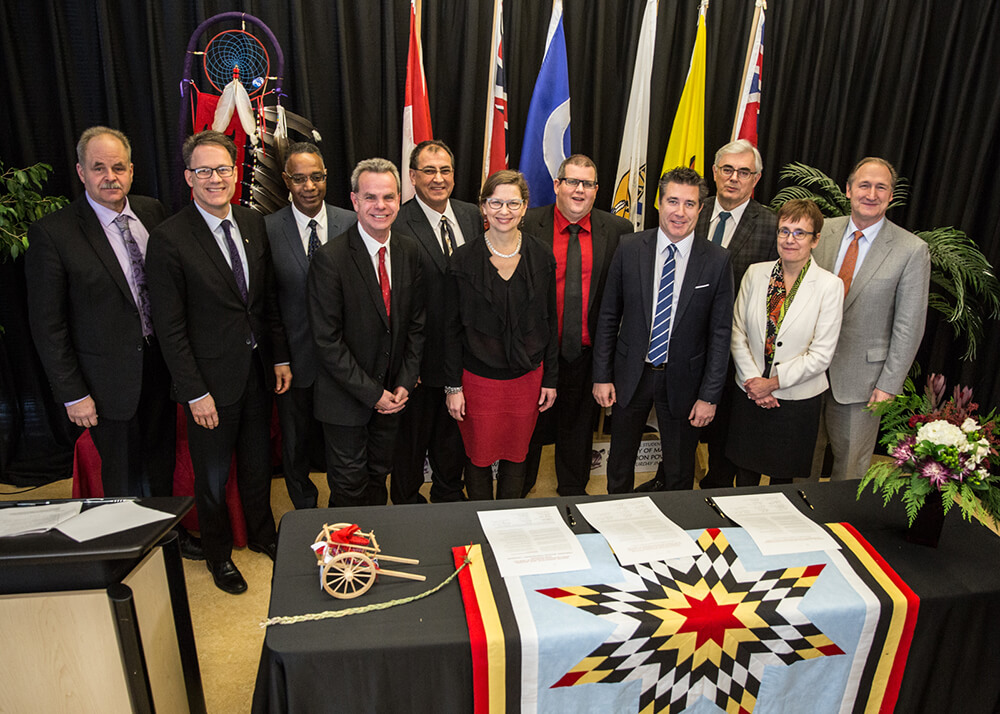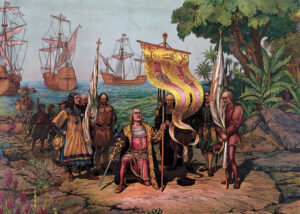Late last month Canadian Mennonite University president Cheryl Pauls signed an unusual document, one that commits CMU to bringing indigenous knowledge and history into its classroom as well as creating a racism-free campus and working to better serve the needs of indigenous students.
In December nine Manitoba colleges and universities and the Manitoba School Boards Association signed the Indigenous Education Blueprint, committing to seek reconciliation with indigenous peoples, support First Nations’ right to self-determination, incorporate indigenous knowledge into curriculum and work to help increase success rates of indigenous students.
The blueprint is a response to recommendations made by the Truth and Reconciliation Commission. On June 2, 2015, the TRC asked the federal government to work with aboriginal groups to “eliminate educational and employment gaps between Aboriginal and non-Aboriginal Canadians” and to work to improve education levels and success rates among aboriginal students.
The blueprint recognizes “the Nation-to-Nation relationships” established when Canada and First Nations groups signed treaties and acknowledges that “historic inequalities and colonial processes have interfered with these relationships and rights.”
“It’s through relationships that we see this going forward,” said Pauls. “We are being intentional about nurturing those relationships.”
“Today’s signing feels like a natural next step, formalizing what CMU has been doing over the past 12 to 18 months,” said CMU communications director Kevin Kilbrei. He pointed out a number of ways in which CMU has already been working toward reconciliation with First Nations. In 2015 CMU engaged in settler-indigenous dialogue by organizing two community conversations on the future of Kapyong Barracks. CMU also hosted 18 students in from Peguis First Nation for a 10-month program designed together with Peguis First Nation to help students transition from the reserve to an urban setting. Student groups on campus supported the campaign for the construction of an all-weather road that will connect the isolated community of Shoal Lake 40 with the Trans-Canada Highway. And the university’s School of Peacebuilding offers a regular course taught by indigenous scholars on the history of indigenous people in Canada.
Kilbrei says it’s too early to say exactly how this new commitment will affect programming or curriculum in the future, but CMU is committing to “incorporating reconciliation into university courses and teaching.” The next steps for the university will be to meet with faculty to identify concrete initiatives, particularly within the peace and conflict studies at the Shaftesbury campus and the Conflict Resolution Studies at Menno Simons College.
“The word reconciliation is in our mission statement,” said Pauls. “Behind that is a strong theological tradition. How does that intersect with the way reconciliation is being imagined now within the TRC use of that term?”
The full text of the Blueprint can be read at: http://umanitoba.ca/admin/Indigenous_connect/media/agamik_PO151363.pdf







Leave a Reply
You must be logged in to post a comment.